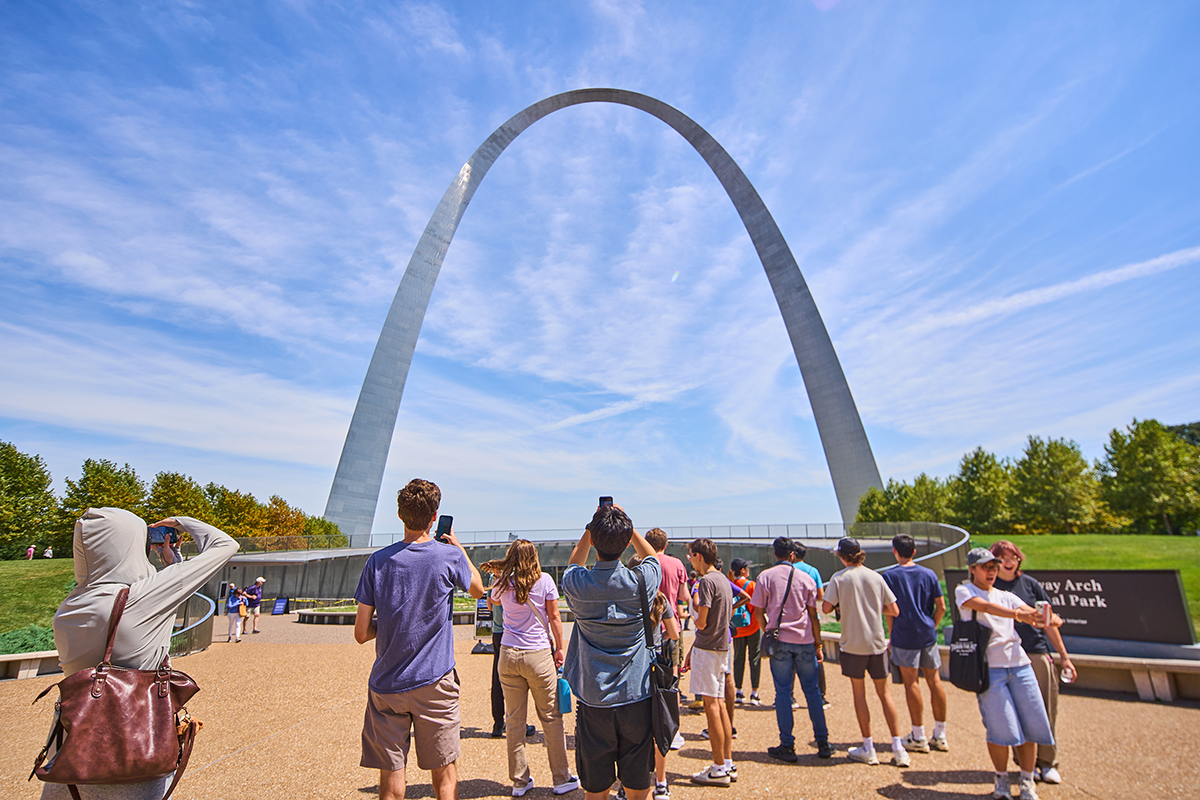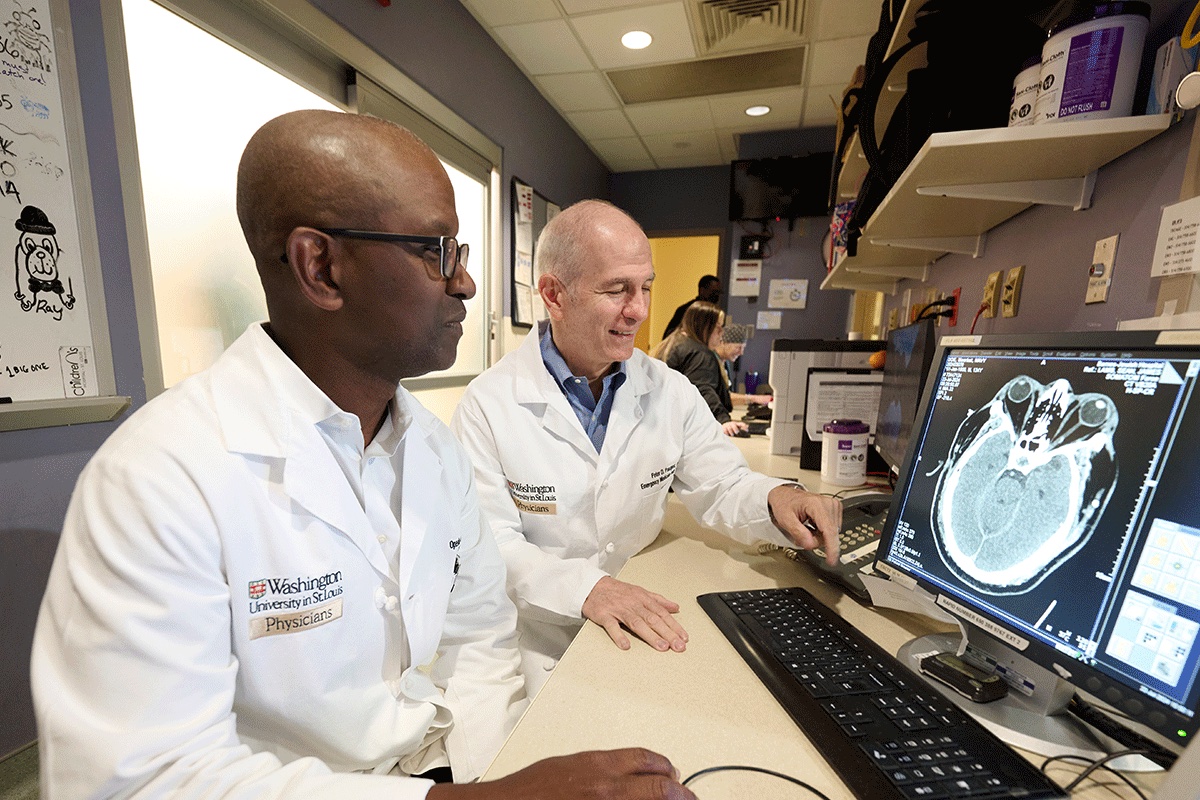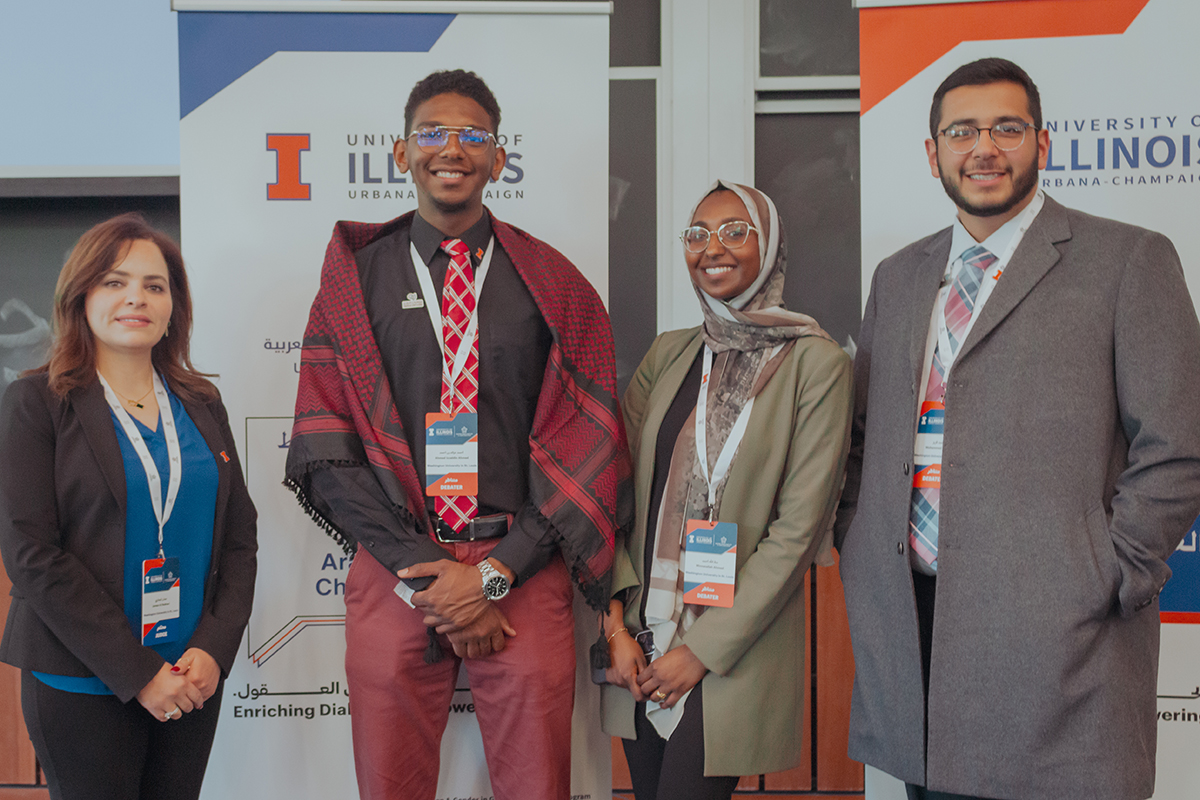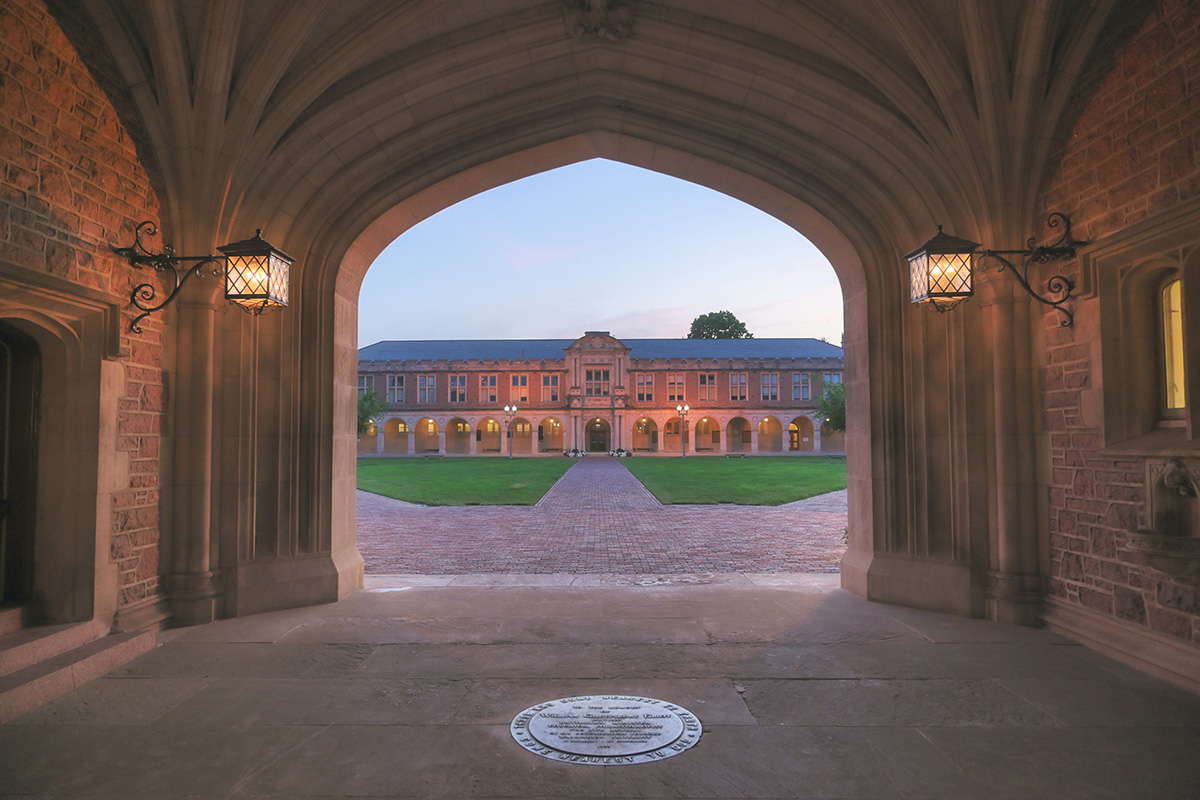The Record
Monday, Sept. 9, 2024
Top stories
WashU partners with Big Brothers Big Sisters of Eastern Missouri
WashU has launched a new partnership with Big Brothers Big Sisters of Eastern Missouri to support high school students in the organization’s Big Futures college readiness initiative.
Adding anti-clotting drugs to stroke care ineffective, clinical trial finds
Opeolu Adeoye, MD, at WashU Medicine, led a national clinical trial that found two anti-coagulant medications are ineffective at improving outcomes for stroke patients.
Researchers uncover hidden source of snow melt
Researchers at the McKelvey School of Engineering are the first to quantify the effect of dark brown carbon on snow melt.
Events
|
SEP 9 |
Chancellor’s discussion with Valerie Jarrett, alumnus Michael Isikoff4 p.m. Monday, Sept. 9 |
|
SEP 10 |
Public health talk on drivers of antimicrobial resistance12:30 p.m. Tuesday, Sept. 10 |
|
SEP 11 |
Workday Student ‘Sneak Peek’ webinar1–2:30 p.m. Wednesday, Sept. 11 |
|
 |
|
The View From HereThrough the WashU lens |
WashU in the News
WashU alumnus Ted Drewes Jr., the frozen custard king of St. Louis, dies at 96
The New York Times
Cough or sneeze? How the brain knows what to unleash
Nature
Guardian Caps reduce football players’ injuries and their ‘swag’
KCBS Radio
The 2024 Great River Biennial artists are ready for the spotlight
St. louis magazine
Campus and community news
A team of WashU undergraduate students recently competed in regional and national Arabic debate competitions.
Chenguang Wang, a computer scientist at the McKelvey School of Engineering, has received funding from Google to improve grounding in large language models.
Revamped academic integrity process begins
After two years of community input, WashU has streamlined the undergraduate academic integrity process. Dedicated staff in the Office of the Provost will help with student questions and faculty support.
Perspectives
‘Election Day weather and football victories could decide the election’
Some factors that have nothing to do with the candidates or their policies can affect a close election. The Brown School’s Mark Rank explains the surprising influence of these random factors.
the conversation





